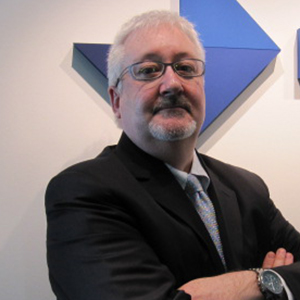Making an impact on prospective employers
- Mind-sets encourage staff to fit in rather than be individual
- Interview candidates can sell their firm well, but not themselves
- A recruitment expert can help job seekers create a personal brand
Have you ever been in the Shinagawa Starbucks coffee shop overlooking the concourse, which connects the station barriers to the office district, during the morning rush hour?
Thousands of businesspeople pass below like a shoal of fish swimming in a vast stream. They all look similar, in appearance and behaviour. It seems they try hard to hide who they are, to be anonymous, and to not stand out.
This effort to blend in is especially true for recent graduates taking their first step into the world of business. At a time in their lives when one would expect them to be full of creativity and curiosity, they seem to obediently adopt the standard “uniform”: white shirt, grey suit, black briefcase, black shoes and a well-maintained haircut.
Watching the mass of people in dark suits marching in unison, one cannot help but consider many things about those generic individuals. For example, what is their name, hometown and profession? What are their strengths, weaknesses and individual traits?
The fact that Japanese generally prefer to enjoy the humility, collective identity and shared sense of belonging of a group is well known. Fitting in to this group—or, better yet, not standing out—is respected. In this sense, the morning rush hour gang is following the rules.
Unfortunately, sometimes these workers tend to feel like a single cog in a much larger machine, and often underestimate their individual value.
When we interview candidates they are usually very proficient at selling their firm’s brand, goods and services, but often stumble, or simply cannot express themselves when asked such questions as “what makes you and your experience different from other candidates?” or “how can you add value to this firm?”
The issue raises some important questions; in an interview, do we represent the firm we work for, or simply ourselves? How important is the name and brand of the business and one’s job title compared with personal characteristics?
It is interesting to observe that in Japan, on a typical double-sided bilingual business card, the Japanese side lists one’s job title first, followed by one’s name. However, on the English side, the name of the person comes first, followed by the job title.
This striking contradiction represents a very different cultural mind-set. Are we defined by who we are, or where we work; by our story and skill set, or our job title?
Japan has undergone a major change in recent years as career-minded staff become more aware of the importance of creating a personal identity for professional success. Some people still see changing jobs, and changing firms, as a risk. This behaviour goes against “the stream”, and is seen as not following the rules.
However, while many of the grey-suit gang in Shinagawa station may feel comfort following the flow and fitting in, increasingly there are ambitious professionals who are in search of something new, something better.
When Japanese job seekers begin to search for new opportunities, they start to reflect about the strengths they possess that have been nurtured through their experience. The challenge for them is to make their background, skills and personal story appealing for a potential employer.
For years they practised and perfected their ability to explain the details of their firm and its brand, but spent little or no time on describing themselves. Clearly, the missing link is personal branding.
Defining one’s personal brand is the first step on the path to navigating a rewarding career path. Self-branding is not simply about your appearance—although certainly this can be part of your personal story—but should be considered a holistic approach.
It is a package that defines you: differentiators, hard and soft skills, achievements, failures, strengths, areas for improvement, resilience, reliability, ambitions, values and character.
Asking yourself questions on such topics as your favourite book, your mentor and the ways to define success all help provoke a meaningful thought process and self-dialogue, which eventually results in the crafting of your personal brand.
A trusted and knowledgeable recruitment expert can help you create your personal brand, and coach you through your important transition.






